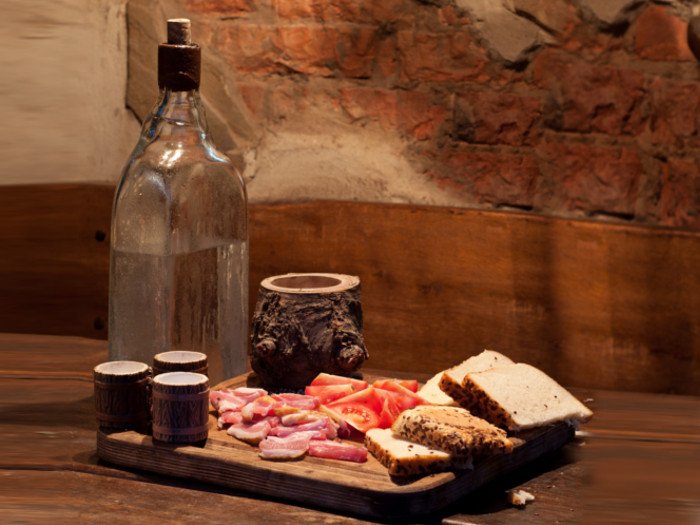Moonshine is a strong, unaged whiskey with an interesting history and a new lease on life due to its growing popularity in certain parts of the world.
What is Moonshine?
Moonshine was originally slang for any illicitly made high-proof distilled spirits. It is a very strong variety of whiskey made from fermented corn mash. Moonshine is thought to have originated from ‘moonrakers’, a term for the Appalachia-based producers and distributors of the illegal beverage. The lack of aging gives this alcohol a raw, hard taste. The making and smuggling of this liquor were often done at night, and the quality, safety, and alcohol content could vary greatly from batch to batch. Since 2010, however, it has been legal for licensed distilleries to make and sell this alcohol in the US. Since then, it has seen a major rise in popularity. [1]

Moonshine is distilled homemade whiskey, usually with high alcohol content. Photo Credit: Shutterstock
Nutrition Facts
Moonshine is very low in sugar and carbohydrates and contains traces of sodium and potassium, as well as a variety of other minerals and active ingredients, but it is not generally considered a nutritious beverage.
Due to its strength, this powerful alcohol should be consumed in very moderate amounts to experience the potential health benefits of reduced stress and anxiety, without suffering from the negative side effects of a serious hangover.
Long considered a dangerous drink with serious health risks attached, the benefits of well-regulated moonshine have not yet been fully researched. [2]
Uses
There is a range of different uses for moonshine, including:
- Lighter fluid: Rather than using more toxic gasoline, try flammable moonshine to get your BBQ going.
- Emergency fuel source: Carefully use this liquor outside for heating or cooking.
- Cleaning agent: This alcohol can be sprayed directly onto surfaces to kills germs and bacteria.
- Antifreeze: Due to its high alcohol content, moonshine can be a natural alternative to chemical antifreeze solutions. [3]
- Preservative: Again, as a result of its high alcoholic content, this potent potable can be used to preserve eggs, meat, vegetables, and fruit.
- Mouthwash: Great for killing mouth germs, this whiskey variety works in a similar way to other alcohol-based mouthwashes.
Word of Caution: If taken in excess, as with any alcohol, moonshine can cause high levels of intoxication and loss of muscle control. In serious cases, it has even been known to cause neurological damage and blindness. Care is recommended both in choosing and consuming different types of alcohol. Choose a licensed distillery and drink only in small amounts. [4]
